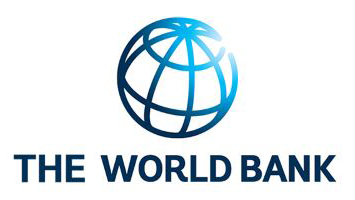African leaders convene on establishment of homegrown solution, the Africa Credit Rating Agency.

As the continent continues its march towards economic integration and resilience, the establishment of Africa Credit Rating Agency (AfCRA) represents a pivotal step in asserting Africa’s position on global financial governance. In this regard, Heads of State and Government are set to convene for a Presidential Dialogue on the Establishment of an Africa Credit Rating Agency on 14 February 2025. Facilitated by the African Peer Review Mechanism (APRM), the event will also bring together policymakers, financial experts, and development partners to deliberate on the operationalisation of a dedicated credit rating agency for the continent.
Heads of State Commit to Concrete Plans to Transform Africa’s Energy Sector, with Strong Backing from Global Partners

DAR ES SALAAM, January 28, 2025 — Thirty African Heads of State and governments today committed to concrete reforms and actions to expand access to reliable, affordable, and sustainable electricity to power economic growth, improve quality of life, and drive job creation across the continent.
New Project will Help Djibouti Enhance Public Finance and Develop Digital Services

WASHINGTON, January 16, 2025 — The World Bank approved today a $20 million grant from the International Development Association (IDA) for a new project that will help Djibouti improve its public finance governance and digital services to support better economic conditions for the population.
World Bank Approves $182 Million to Enhance Health and Safety Nets in Sudan

ADDIS ABABA, January 12, 2025—The World Bank has approved two projects aimed at restoring and enhancing access to health services and providing emergency safety nets in Sudan. With a combined funding of $182 million, these projects address the urgent needs of vulnerable communities affected by both conflict and natural disasters.
Namibia: New World Bank Group Strategy Aims to Boost Job Creation and Access to Quality Services

WASHINGTON, January 07, 2025 – The World Bank's Board of Executive Directors discussed a new Country Partnership Framework (CPF) for Namibia, which outlines the World Bank Group’s strategy in the country for FY2025 to FY2029. The CPF’s overarching goal is to support Namibia to promote economic growth and reduce inequality in a sustainable manner, by facilitating job creation and better access to quality public services.
African Development Bank and International Organization for Migration Hold Talks to Strengthen Migration and Development Collaboration in Africa

17 January 2025
African Development Bank Group Senior Vice President Marie-Laure Akin-Olugbade met on Tuesday with Amy Pope, Director General of the International Organization for Migration (IOM) to discuss closer collaboration between the two organizations on migration and development across Africa.
African Development Bank launches a new GBP 500 million 4.625% 3-year Global Benchmark

16 January 2025
The African Development Bank (“AfDB”), rated Aaa (Moody’s) / AAA (S&P) / AAA (Fitch) / AAA (Japan Credit Rating), has launched and priced a new GBP 500 million 3-year Benchmark transaction due February 1st, 2028. The bond pays a coupon of 4.625% with a re-offer yield of 4.704% and a reoffer price of 99.778%.
African Development Bank partners with Prosper Africa and the U.S. Department of the Treasury to enhance capital flows to Africa

17 January 2025
The African Development Bank has signed a $700,000 Donor Contribution Agreement with Prosper Africa, a U.S. Presidential initiative, and the United States Department of the Treasury to develop a Credit Rating Online Data Platform to reshape how international investors assess risk in African markets. The grant will also help bolster the analytical capacity of regional member countries (RMCs) and improve their engagement with credit rating agencies.
Ambitious Climate Action Will Reap Large Dividends for Cabo Verde

PRAIA, January 15th, 2025 – Building resilience and accelerating a low-carbon transition are central to Cabo Verde’s sustainable development strategy, according to the newly launched Country Climate and Development Report (CCDR).
African Development Bank Launches Pioneering Energy-Efficiency Project in Senegal

13 January 2025
The African Development Bank has approved an €8.51 million loan for Senegal’s "Programme to Promote Efficient Lighting Lamps" (PPLEEF), a trailblazing initiative to advance energy efficiency in the country. This marks the Bank’s first fully dedicated demand-side energy efficiency investment project, setting a new benchmark for sustainable development across Africa.




